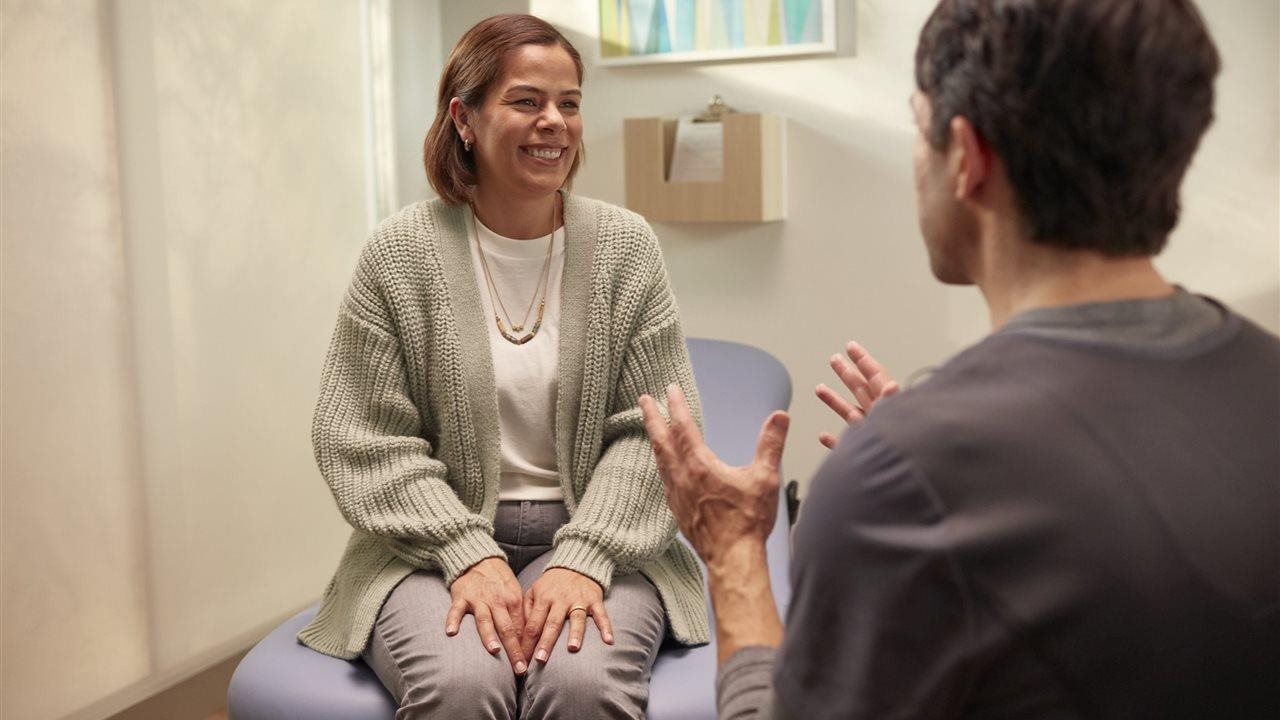When Sara Pereda began experiencing rapid weight gain, high cholesterol, restless leg syndrome, sleepless nights and hot flashes in her late 30s, she knew something wasn't right. She turned to her doctor of many years for answers. However, they couldn't identify the root cause of Sara's symptoms.
Concerned that Sara's health concerns were signs of prediabetes or autoimmune disorders, they ordered tests but stopped the search there. What Sara and her doctor didn't realize at the time was that she was in perimenopause.
What is perimenopause?
Although many people have heard of menopause, perimenopause (the transitional period leading up to menopause) isn't as well known. Menopause is diagnosed when a woman hasn't menstruated for 12 months straight due to depletion of ovarian follicles. In the U.S., the average age when women reach menopause is 51, with most doing so between 46-56 years old. Perimenopause is the symptomatic lead-up phase, typically 4-10 years in duration. As a result, perimenopause symptoms are most common in your 40s and 50s. However, some women can experience perimenopause as early as their 30s.
The perimenopausal phase can last an average of three to four years before menopause, but some women can experience perimenopause for as long as a decade, according to Harvard Health.
According to the Mayo Clinic, some signs that you may be entering perimenopause:
- Irregular periods
- Hot flashes
- Sleep problems
- Mood changes
- Vaginal dryness
Perimenopausal symptoms aren't always obvious and rarely happen all at once, leaving Sara and others stumped as to what they're experiencing.
"If you have all of these symptoms at the same time, you might realize it's menopause, but they came in sporadically," Sara said.
She also shared that a lack of education and discussions about this transitional stage in a woman's life made it harder to identify her condition. Additionally, at the time, neither Sara nor her doctor knew of studies that have shown women of color are more likely to enter perimenopause or menopause at an earlier age than white women, often leading to misdiagnosis.
"Menopause wasn't something that my community or friends were talking about, especially at this age," Sara said. "So, it didn't come to mind."
A common problem that often goes unrecognized and untreated.
Each year in the U.S., approximately 2 million women like Sara enter perimenopause and an additional 1.3 million enter menopause, but many women report feeling dismissed by health care providers who don't have the proper training to identify and address symptoms.
Why do Sara and so many others go without treatment? Unfortunately, perimenopause- and menopause-specific training isn't standard for primary care providers, leaving many providers unprepared and patients unsupported during this transition.
"Many patients in Texas endure treatable menopausal symptoms, sometimes for years, because of a lack of public awareness of perimenopause and menopause and insufficient training for primary care providers," said Lindsay Botsford, M.D., Regional Medical Director of Texas and the Midwest, One Medical. "At One Medical, patients can get the holistic support they need in a primary care setting for their specific perimenopausal and menopausal concerns."
Taking her care into her own hands, Sara began working out more frequently and even considered taking GLP-1s to help with the additional weight that she just couldn't seem to shake. It wasn't until she made an appointment with a primary care provider at One Medical that she realized the symptoms she had been experiencing for several years could be signs of perimenopause.

One Medical provides primary care services in over 150 locations across the U.S. and menopause visits are now available in all regions where One Medical has offices, including: Atlanta; Austin; Boston; Chicago; Connecticut; Dallas-Fort Worth; Houston; Los Angeles; Miami-Fort Lauderdale; New Jersey; New York; Portland; Raleigh-Durham; San Diego; Seattle; the San Francisco Bay Area; Washington D.C.; Columbus, Ohio; and Orange County, California. Because One Medical offers same-day and next-day visits in person and remotely, patients can get care on their schedule when they need it most. Recently, One Medical introduced a new visit type specifically designed to help fill this care gap by providing comprehensive support during this significant health transition.
The new menopause visit connects patients with primary care providers who have pursued additional training specifically focused on identifying, addressing and treating the wide range of symptoms associated with perimenopause and menopause. This dedicated care aims to help patients feel more empowered to navigate this natural but often challenging phase of life.
Sara was able to quickly schedule a visit with a primary care provider who suspected her symptoms were related to menopause. After running in-house labs, the test confirmed that Sara was experiencing perimenopause.
When asked about her experience, Sara said it was simple.
"With other places, it was hard to get an appointment with your general practitioner, and everything is so fragmented and disjointed," Sara said. "At One Medical, everything is centralized, and you can easily book an appointment, find the information you need and have your test results in one place."
Are you ready to make an appointment?
Making an appointment for menopause symptoms is just as easy as any other type of visit for One Medical members. Open the One Medical app and select the "Peri/Menopause Visit" appointment option and fill out an intake questionnaire to ensure the visit is targeted toward specific needs and concerns.

One Medical takes most major insurance plans for scheduled in-person and remote visits and works with patients to prescribe affordable treatments based on their unique needs. Membership is not required to schedule a visit at One Medical. Those without a membership can find appointments by visiting Health.Amazon.com/Menopause.



